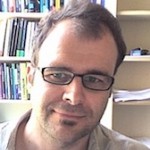According to the Lockean conception of temporal experiences (experiences of succession, duration, change, etc.), such experiences do reduce to mere successions of their temporal parts. However, as Michael Tye (2003) has suggested, there’s a familiar modal consideration undermining the identity of a whole experience of a temporally extended event with the succession of its temporal parts: the two have different modal properties (if the succession couldn’t have occurred without some of its parts, the whole could have, the argument goes) and hence, by Leibniz’s Law, cannot be identical after all. Fortunately, there’s a familiar response, suggesting that the argument equivocates the relevant modal properties (typically, the point is made via so-called “abelardian predicates”). Still, does the response really stand up to further scrutiny? I try to argue that there’s no reason to think it doesn’t.
Philosophy Seminar Series.
Date: Thursday, 10 Apr 2014
Time: 2 pm – 4 pm
Venue: Philosophy Resource Room (AS3 #05-23)
Speaker: Philippe Chuard, Southern Methodist University
Moderator: Dr. Ben Blumson
About the Speaker:
 Now an associate professor in philosophy at SMU (Dallas, TX), I work mostly in philosophy of perception, philosophy of mind, and cognitive science, with some mild forays into epistemology and metaphysics. I obtained my PhD at the ANU, after studying in Sydney and Geneva (Switzerland) before that. I’ve published a various papers in various journals mostly on the conceptual content of perceptual experiences, and some on the nature of epistemic norms and the nature of perceptual appearances (and the non-transivitity of look-statements).
Now an associate professor in philosophy at SMU (Dallas, TX), I work mostly in philosophy of perception, philosophy of mind, and cognitive science, with some mild forays into epistemology and metaphysics. I obtained my PhD at the ANU, after studying in Sydney and Geneva (Switzerland) before that. I’ve published a various papers in various journals mostly on the conceptual content of perceptual experiences, and some on the nature of epistemic norms and the nature of perceptual appearances (and the non-transivitity of look-statements).